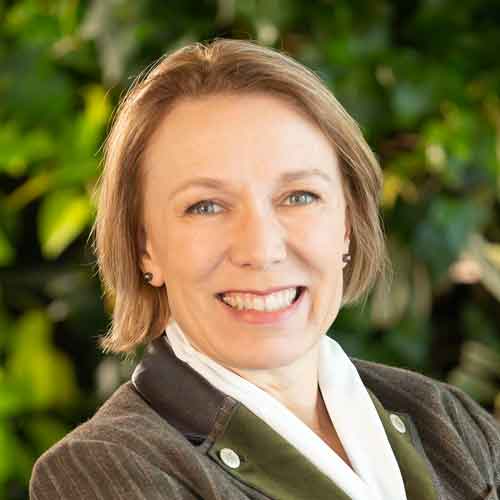A Statement from CEBA’s CEO, Miranda Ballentine

Every leader has pivotal times in their career, where growth is inevitable. As for many, 2020 was such a year for me, and the first quarter of 2021 has not exactly been smooth sailing either. Yes, leading through a global pandemic and the subsequent recession required a growth mindset. Yes, the rolling climate calamities from the western wildfires to the Atlantic hurricanes to the Texas polar vortex inspired me and us to think bigger and faster about CEBA’s mission. Yes, the political upheaval of the last election year and the resultant insurrection against our democracy required tenacity.
For me as a leader, however, the racial reckonings of 2020 and 2021 have been one of the most transformative times of my career. From George Floyd’s murder to the locking up of Hispanic children to last week’s killing of Asian women, and so many other atrocities, those of us with privilege of any kind have to use our voices bear witness to those that face persecution, harassment, and even violence because of who they are.
Ok, I’m going to get a little personal here, and truthfully, this is not easy. It is hard to acknowledge having not fully seen such glaring racial issues , but I feel compelled to start there because to transform CEBA’s role, I first need to change myself as CEBA’s leader.
When Obama was elected, the Nation was in the midst of the #MeToo movement, and the Air Force Leadership, where I worked at the time, included more men of color than women of any race, and I thought we had made more progress as a Nation on racial issues than on gender or immigration issues.
As the granddaughter of Sicilian, peasant immigrants with no more than third-grade educations who faced discrimination and incredible hardship because of their nationality, rough accent, and poverty, I didn’t think “white privilege” applied so much to me, since my ancestors played no part in the Nation’s slavery. And they, and I, have worked hard for every success in life.
Yet, it’s now clear to me that the color of my skin evened out those discriminations in one short generation… and in fact, my immigrant grandparents had a path to citizenship because they fit the legal definition of “whiteness.”
Until 2020, I ascribed “white supremacy” to a fringe group of individual people, not a mainstream system from which I benefited due to the color of my skin. Yes, I could see the statistics; yes, I had been disgusted and heart-broken at racially-based violence; but somehow, I believed it came down to individual bad apples.
Some of you may be thinking, “your head has been in the sand,” and some of you may relate.
For me, in 2020, what I learned was that:
No, just because we had an African American president before a female president, it was not an indication that racial equity had happened in this country. (And yes, gender issues are still an issue, as are so many other forms of bias and discrimination).
Yes, even as a ‘new’ European immigrant to this country, I still personally benefited from centuries of structural white supremacy thanks to the color of my skin and the European origin of my (relatively recent) immigrant ancestors.
Racism, white privilege, and white supremacy are not (just) individual personal “isms” that afflict other people—the bad apples—but are systems built over 400 years in the United States, written in the law, policy, and social norms. And every single person with light skin, including me, has benefited from such systems.
And if I want CEBA to be a leader in solving these systemic issues, I, personally, as CEBA’s CEO, need to think differently about what racism is… and isn’t. About what diversity, equity, inclusion, and justice are… and are not. About the breadth of injustices, not just racial, but gender, sexual orientation, ability/disability, and so many others.
I have always been passionate about the value and benefit of diverse work forces, having experienced firsthand the benefits when working at Walmart with people from around the world of every race, religion, and political affiliation. I was proud to write CEBA’s Commitment to Diversity and Equity from day one of our inception, and I worked hard to close any pay gaps and sought diverse candidates. But it hasn’t been enough.
Here are just a few updates on some of the activities CEBA has undertaken since I wrote my blog in June to foster growth and learning.
- We built an internal team of CEBA staff called Project Together Task Force to build, refine, and launch CEBA’s organizational policies, procedures, and practices to: increase the diversity of CEBA’s workforce; ensure that equity and inclusion are built into the DNA of our organizational culture; and foster a spirit of partnership and continuous improvement.
- We initiated conversations with the CEBA community on the topic DEI-J, taking a first, small-step toward understanding and developing pathways for CEBA to do our part on solutions to the systemic barriers to DEI-J in clean energy.
- CEBA and Groundswell partnered to launch Corporates x Communities, funded by the JPB Foundation, to explore how large buyer renewable energy procurement can generate co-benefits for local communities, and are wrapping up the Working Wisdom Listening Tour.
- We selected Dr. Nika White to help us on the journey.
- I joined the CEO Pledge, partly because committing matters, but even more because learning from others accelerates progress. Like CEBA, this organization seeks to share best practices and mistakes so we can all improve.
- We kicked off a board-level task force to assess pathways for diversifying CEBA’s leadership.
- We launched a new membership option for women and minority-owned.
What’s next for CEBA on this journey?
- We’re wrapping up an in-depth assessment of CEBA’s own culture—fledgling as we are—so we can model DEI-J inside and out that will inform a 2-year plan at CEBA.
- Clean Energy Buyers Institute, CEBA’s affiliate, is leading a six-month series of dialogues as a part of the Beyond the Megawatt initiative with our members about DEI-J in our industry, and clean energy justice issues.
- Together Tuesdays, a discussion platform for the member community to lead advancements of DEI-J in the renewable energy industry, is ongoing and will result in support in the form of guidance documents, case studies, and other resources.
- We’ll be actively seeking diversity at the board level for both CEBA and the Clean Energy Buyers Institute.
- To create equitable opportunities within CEBA membership, we have lowered the financial barrier-to-entry to offset structural disadvantages.
The first step has been learning. Open, honest, and raw learning. I’ve been inspired by my team, who meet together to grow, talk, and challenge. I feel I am at the very beginning of an exciting journey, and as I continue to learn, I want to hear what has stood out for you.
Thank you for reading and I look forward to the journey ahead with those of you want to join.
Yours in our shared commitment to a zero-carbon energy future,
Miranda
Authors:

Miranda Ballentine
CEO
Clean Energy Buyers Association (CEBA)
